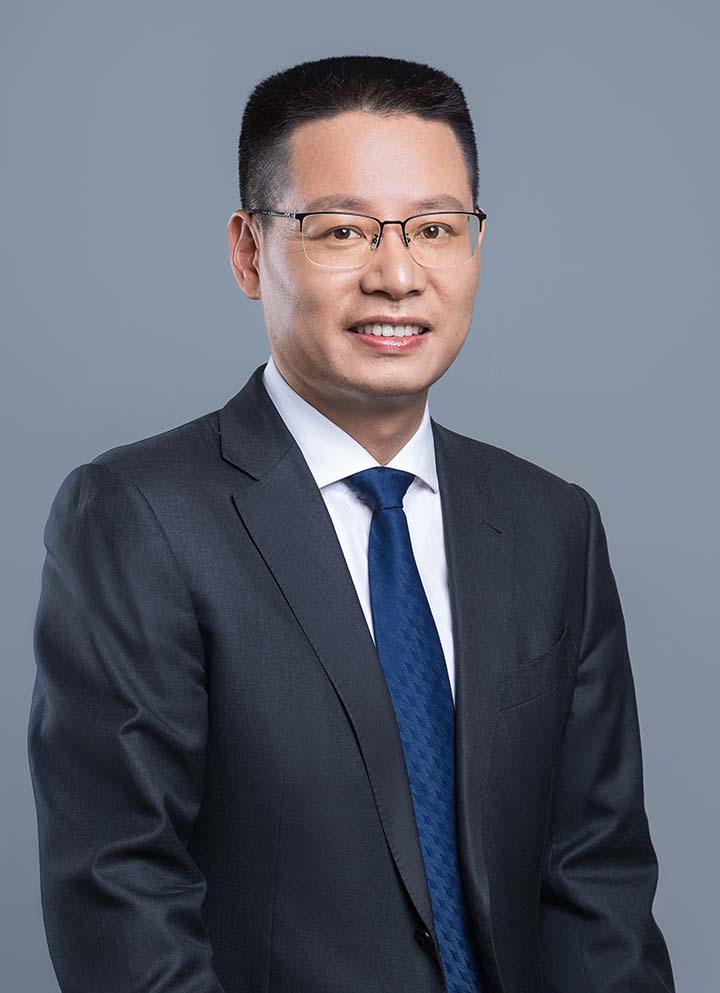Building a Prosperous Datacom Talent Ecosystem
Produkty, Rozwiązania i usługi dla przedsiębiorstw

Reading guide: Intelligent cloud-networks are key for the rapid digital transformation that's sweeping across industries. As such, Huawei has launched its intelligent cloud-network solution along with developing a data communications (datacom) talent training system — Huawei Datacom Certification. The latter follows a comprehensive set of datacom talent development standards focused on advanced technologies, universal capabilities, and best practices. Its aim is to develop datacom talent ready to tackle intelligent cloud-networks.
Digitalization is happening faster and faster as digital technologies like cloud computing, big data, and Artificial Intelligence (AI) mature. With cloud computing delivered as an online public service, accessing high computing power and AI has never been easier. We strongly believe that to prosper, enterprises must embrace cloudification. The global research giant IDC forecast that 80% of global enterprises would speed up their cloud migration by the end of 2021. Most companies are slated to opt for multi-cloud access that involves public, private, and hybrid clouds. In this context, intelligent cloud-networks will enable access to computing power and intelligence for a wide variety of industries, boosting their productivity and driving the digital economy. Huawei has launched its own intelligent cloud-network solution along with formulating datacom talent development standards, hoping to help companies go digital by developing new types of talent.
In its Global Industry Vision (GIV) 2025 report, Huawei predicts that by 2025, there will be 100 billion smart devices connected worldwide, and ubiquitous ultra-high speed networks will have been built to connect every corner of the world. Cloudification will be a key part of this digital transformation. To help companies migrate to cloud, future enterprise networks must be capable of carrying and agilely deploying services, proactively detecting service changes, and anticipating network risks.
Through these advanced networks, every person, home, and organization will access intelligence and computing power on the cloud, developing businesses and the economy. Intelligent cloud-networks are the foundation for this to become reality.
The intelligent cloud-network should have several key features.
1) Network digitalization: The system should be able to digitally sense the network status, abstract and model the entire network status in the digital world, and centrally distribute status information to the cloud. This will allow it to centrally manage the cloud and visualize network-wide status.
2) Network intelligence: After networks are digitalized, new technologies such as AI and big data can be used to integrate intelligence into the cloud-network. This will allow for intelligent, balanced scheduling of network and cloud resources as well as intelligent network Operations and Maintenance (O&M). This will also significantly improve network troubleshooting efficiency along with enhancing network security protection through intelligent security defense.
3) Network as a Service (NaaS): One-click subscription to network services improves network response efficiency to match cloud agility. It enables open programming for networks to flexibly interconnect with cloud services and meet different service requirements. Plus, it integrates cloud-network security and provides more secure cloud-network services.
Huawei has built an end-to-end intelligent cloud-network solution to help enterprises deploy and use the cloud. The solution consists of four scenarios: cloud campus network (CloudCampus 3.0), cloud WAN (CloudWAN 3.0), hyper-converged data center network (CloudFabric 3.0), and network security (HiSec 3.0).
Driven by both service requirements and technological innovation, Huawei's intelligent cloud-network solution enables profound network architecture transformation and achieves synergy between the cloud and network. In addition, Huawei works with customers and partners to dive deeper into specific industry contexts and develop vertical industries.
For example, in healthcare, Huawei works with Neusoft HIFLY to develop a clinical medical Internet of Things (IoT) solution based on the medical cloud-network. The solution enables wireless and intelligent clinical devices to provide efficient, high-quality clinical data in real time. It also promotes the development of clinical medical intelligence.
Another example is in the manufacturing field. We work with Beijing WellinTech to develop the 'intelligent manufacturing-industrial IoT solution' based on advanced industrial networks. This solution draws on WellinTech's 25 years of experience in industrial automation and capitalizes on the data capabilities of more than 5000 industrial devices and protocols. It syncs different systems and standards in industrial interconnection and interoperability, achieving one-stop, factory-wide, digital management and control.
Huawei's intelligent cloud-network solution has opened more than 1000 Application Programming Interfaces (APIs)to meet the customized development requirements of different industries, serving more than 12,000 customers in over 140 countries. This includes industries like education, government, transportation, finance, and energy.
With the widespread application of intelligent cloud-networks, technical experts in the datacom industry are facing new challenges. They need to shift from command line-based network lifecycle management to intelligent cloud-based network lifecycle management. This means probing deeper into campus networks, DC networks, WANs, and network security scenarios to update their knowledge and skills. They should also be able to manage the entirety of solutions, from planning and construction to maintenance and optimization.
As we anticipate a rise in demand for new types of datacom talent, we have launched Huawei Datacom Certification — a comprehensive set of datacom talent development standards focused on advanced technologies, closed-loop capabilities, and best practices. Huawei has strong datacom capabilities, extensive project and talent development experience, and a deep understanding of what enterprises need for digital transformation. As such, we rolled out the certification globally in 2020.
Huawei Datacom Certification is an upgrade of our routing and switching certification system, and draws on theory and practice about Huawei's datacom network solutions as well as latest technologies in general. While preparing for Huawei Datacom Certification exams, learners master both technical basics and learn about real-life applications. Passing the certification indicates their expertise in the design, deployment, operation, maintenance, and optimization of the entire lifecycle of networks.
As part of our talent development efforts, Huawei aims to prepare 50,000 datacom exerts over the next three years. For this, Huawei has launched the '1 + 4 talent development plan' for Huawei Certified ICT Experts (HCIE) in the datacom field. 1 refers to the HCIE elite team. 4 refers to four training and workshop plans centered on network planning and design training, industry network solution enablement, new technology/product/solution salons, and project practice (Eagle School). The 1 + 4 plan will help HCIEs to continuously hone their technical skills.
Huawei will use its 'ecosystem+' strategy to enable industries. We will work with partners from around the world to build a talent ecosystem on datacom networks. We will streamline talent development through our 'knowledge-skill-productivity' strategy. The talent ecosystem will enable service innovation and help build the foundation for industrial digital transformation.

Pull quote:
Driven by both service requirements and technological innovation, Huawei's intelligent cloud-network solution enables profound network architecture transformation and achieves high synergy between the cloud and network.
—— Kevin Hu, President, Huawei's Data Communication Product Line